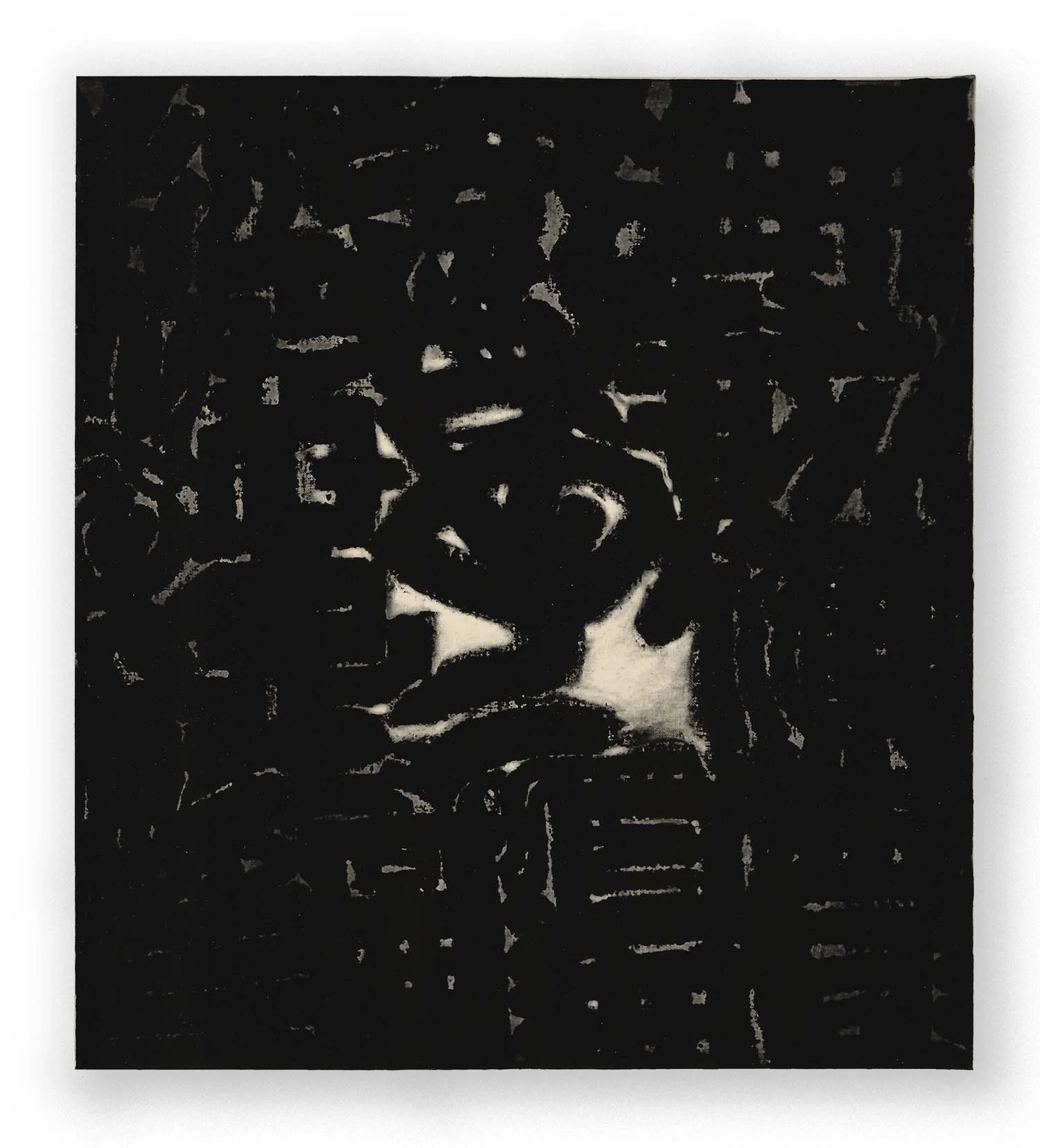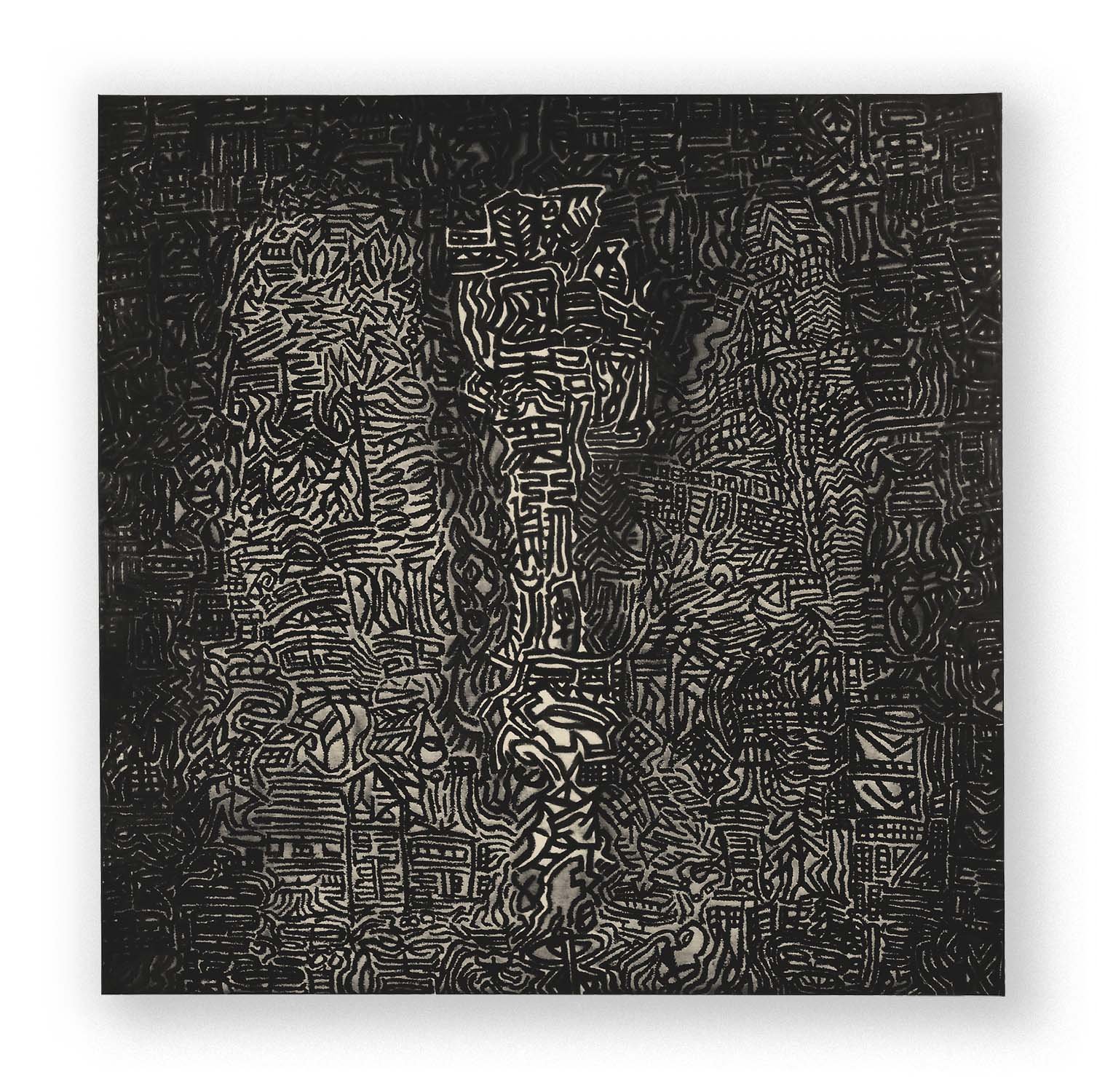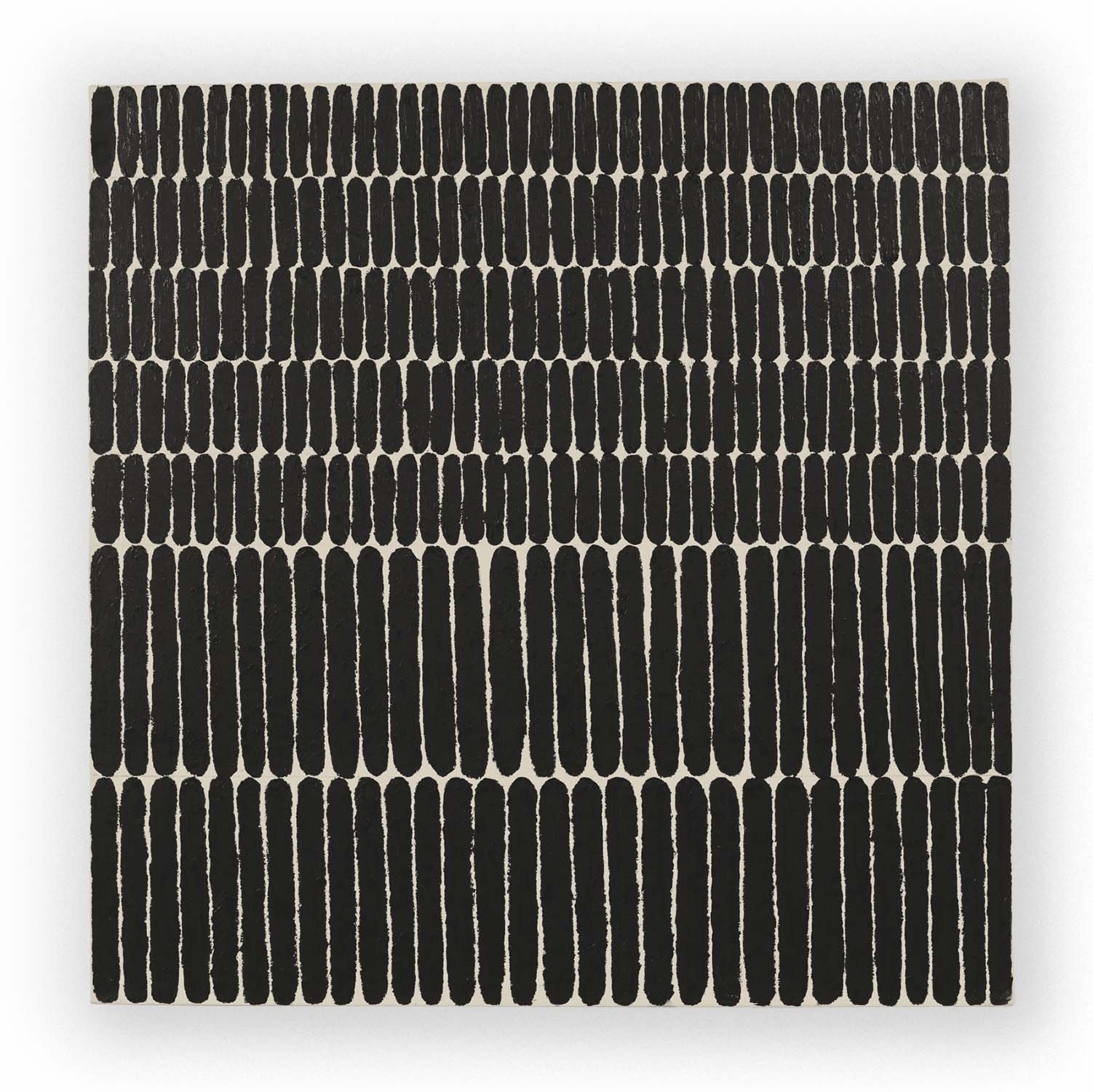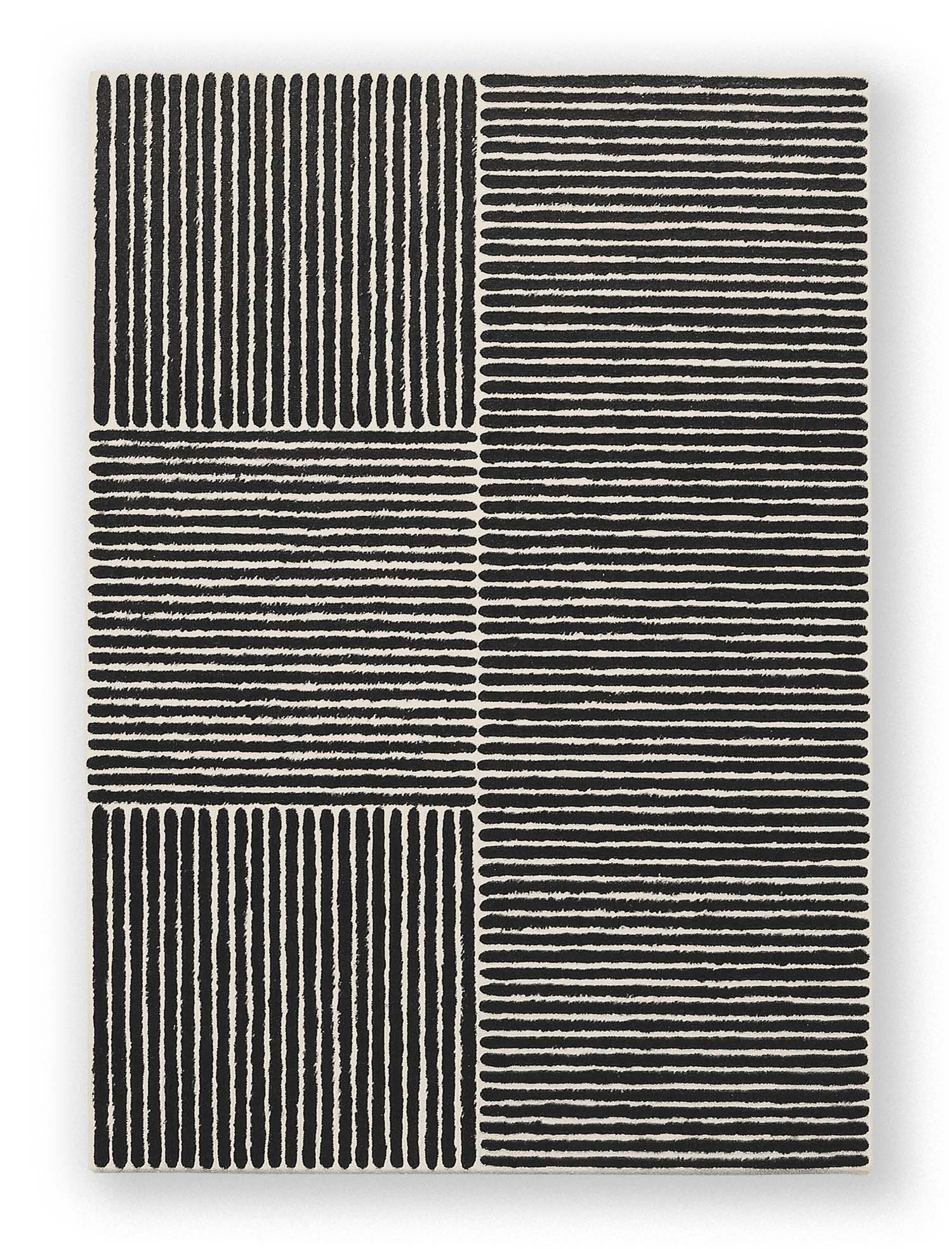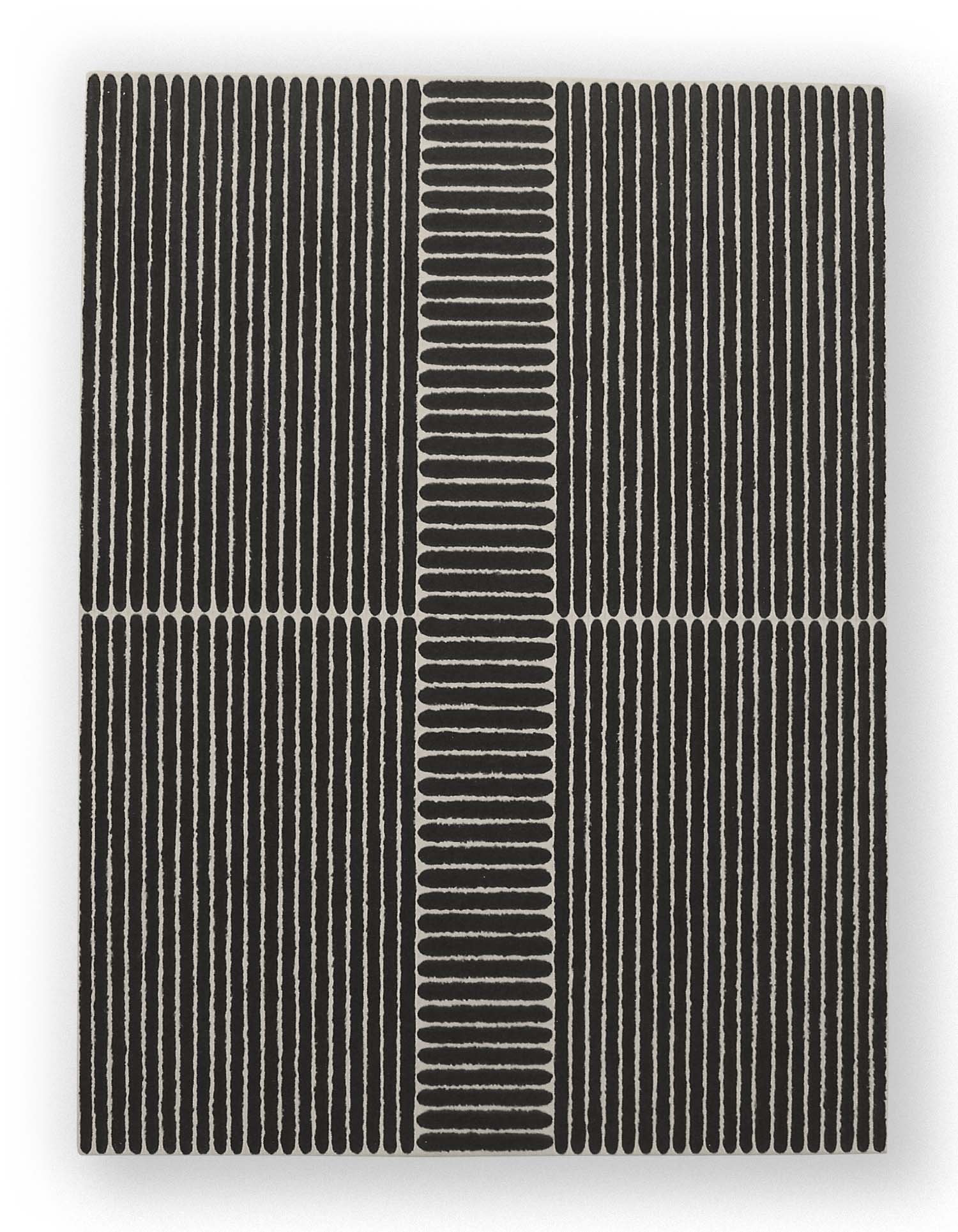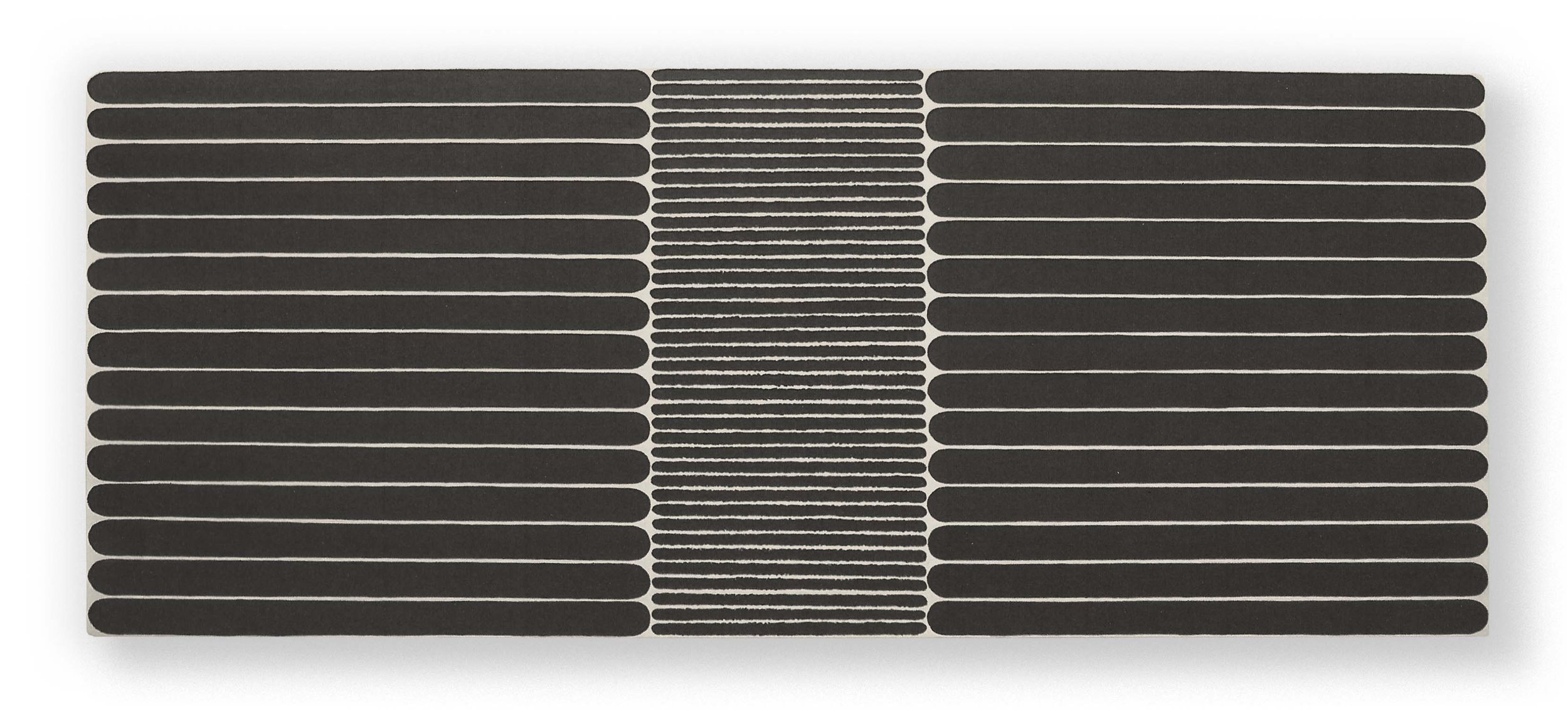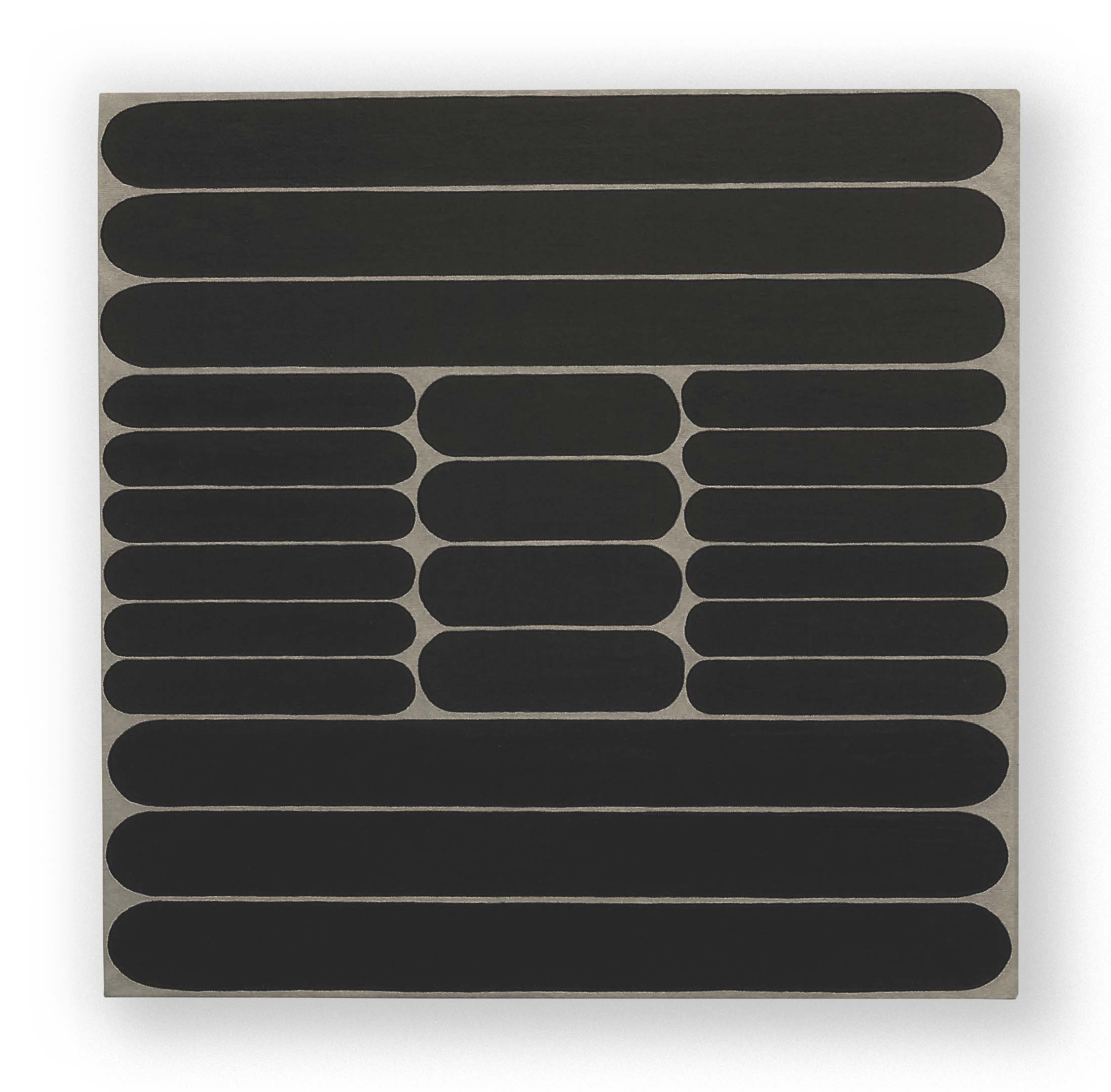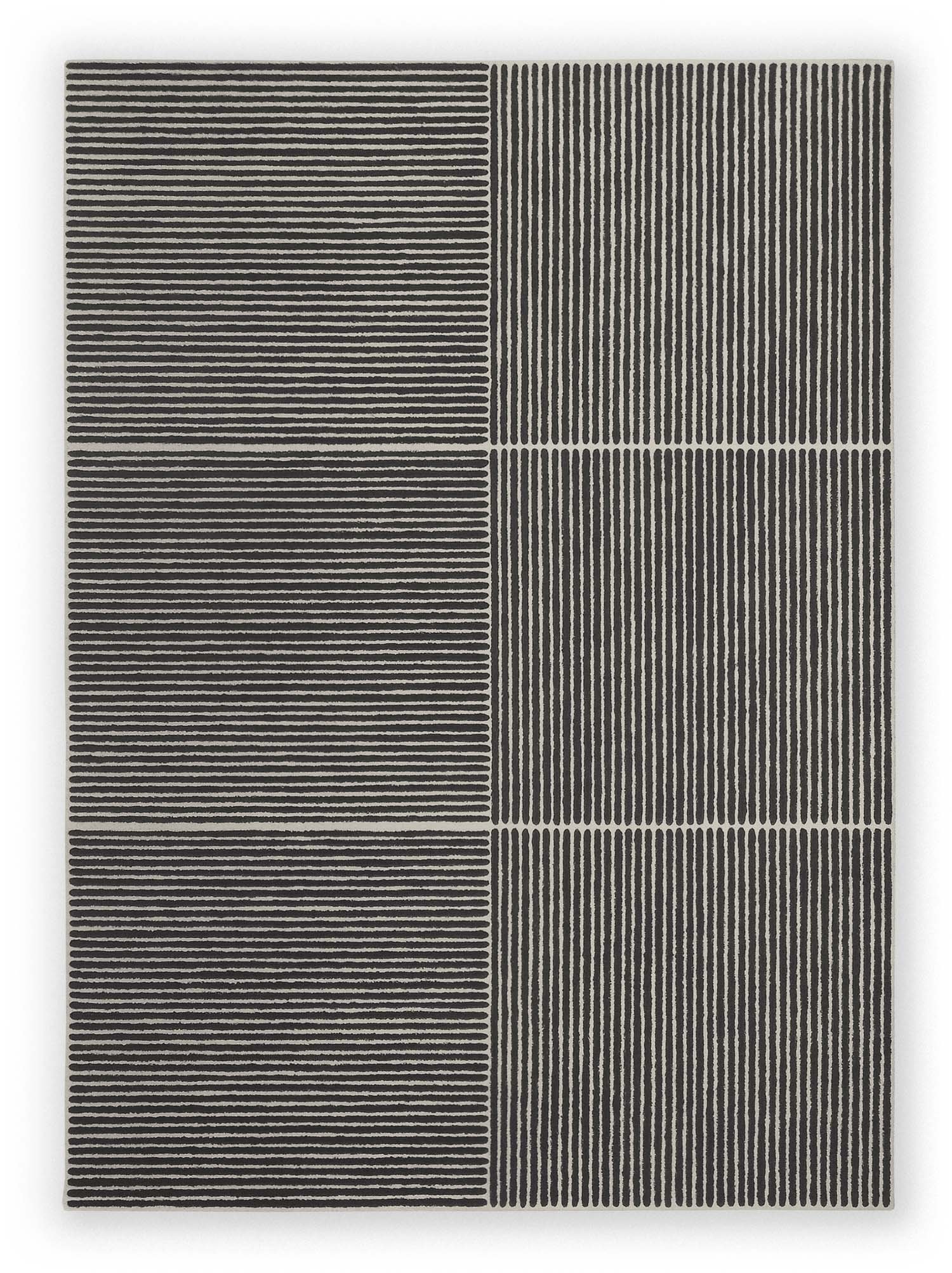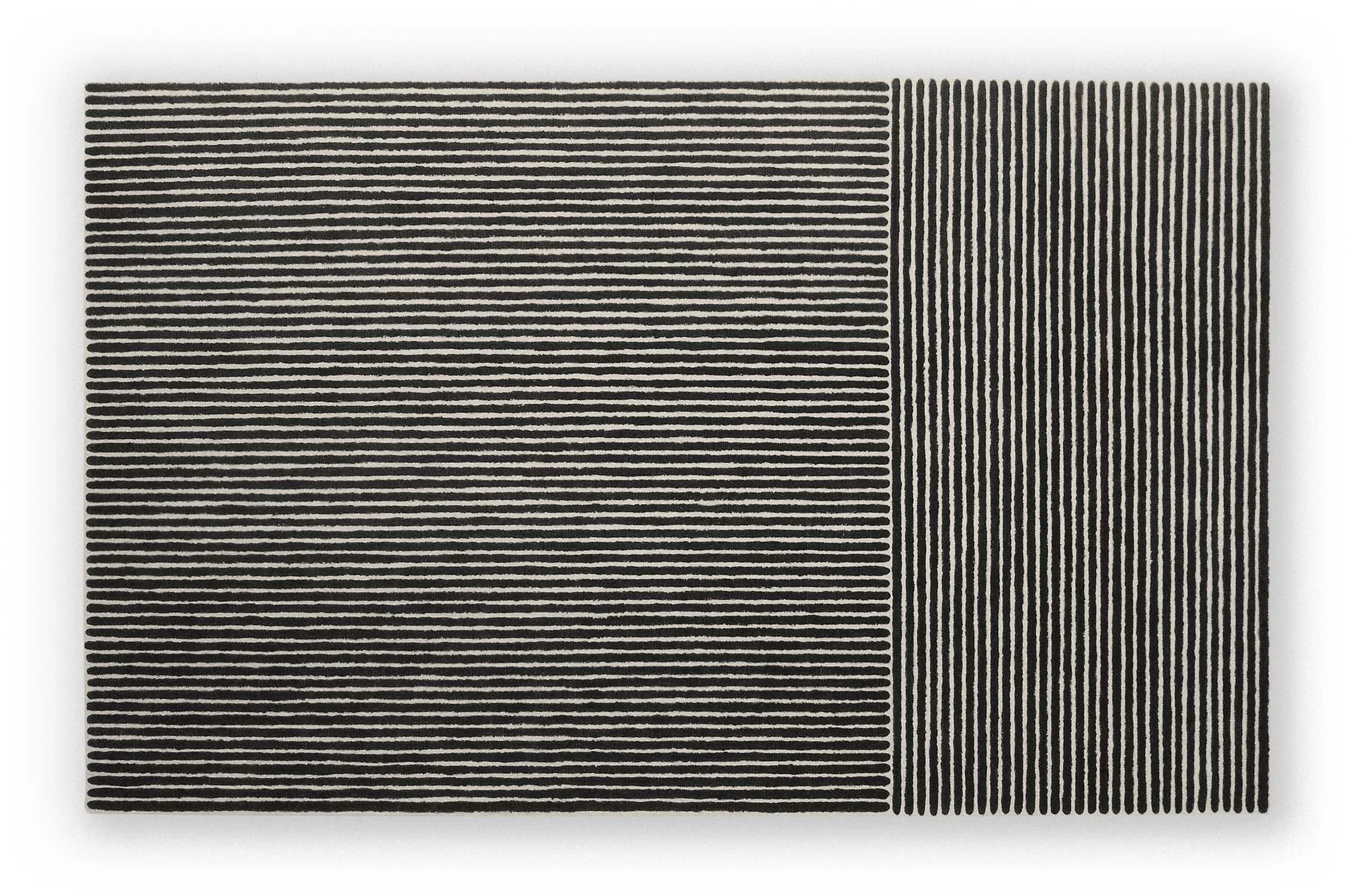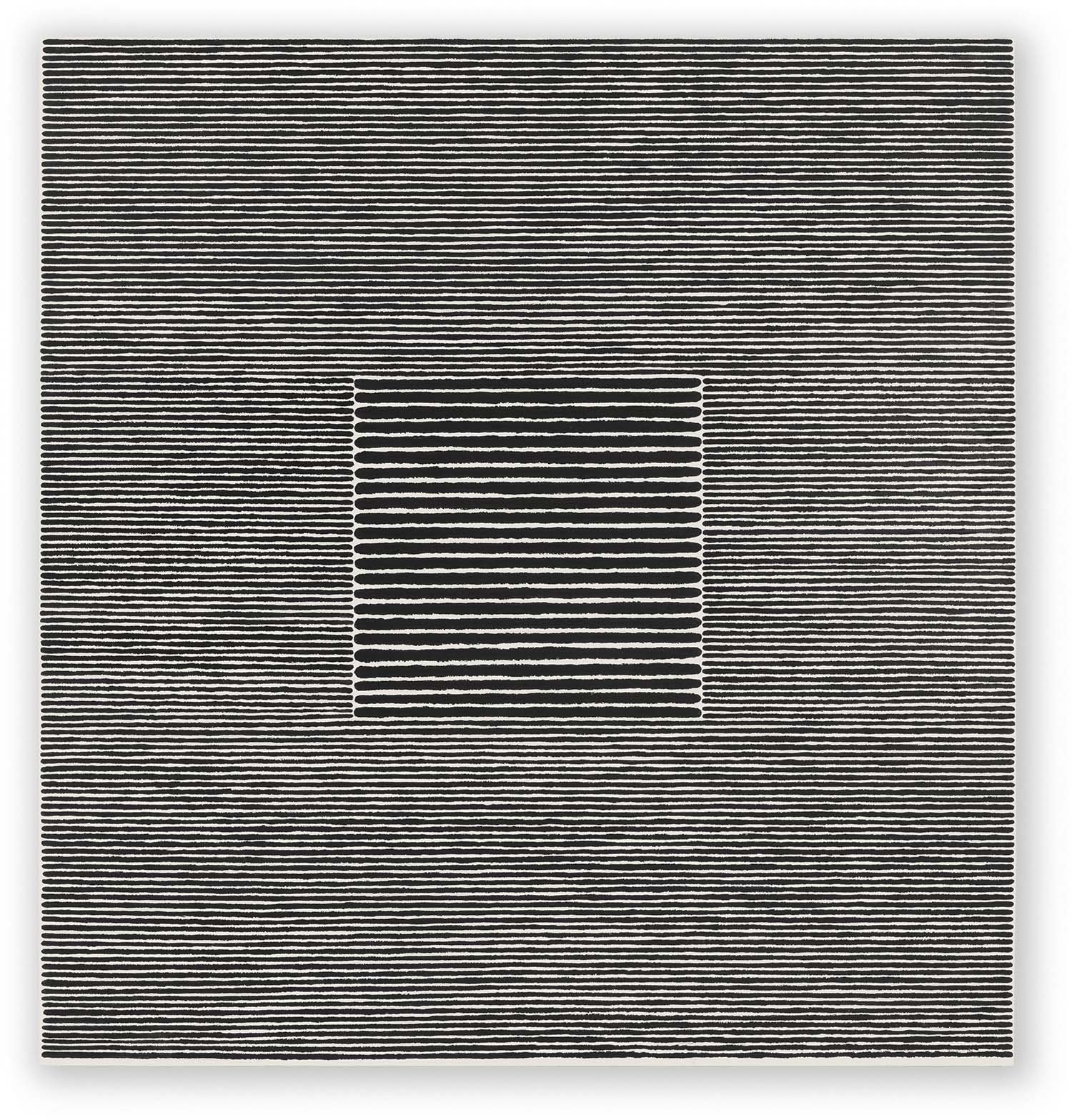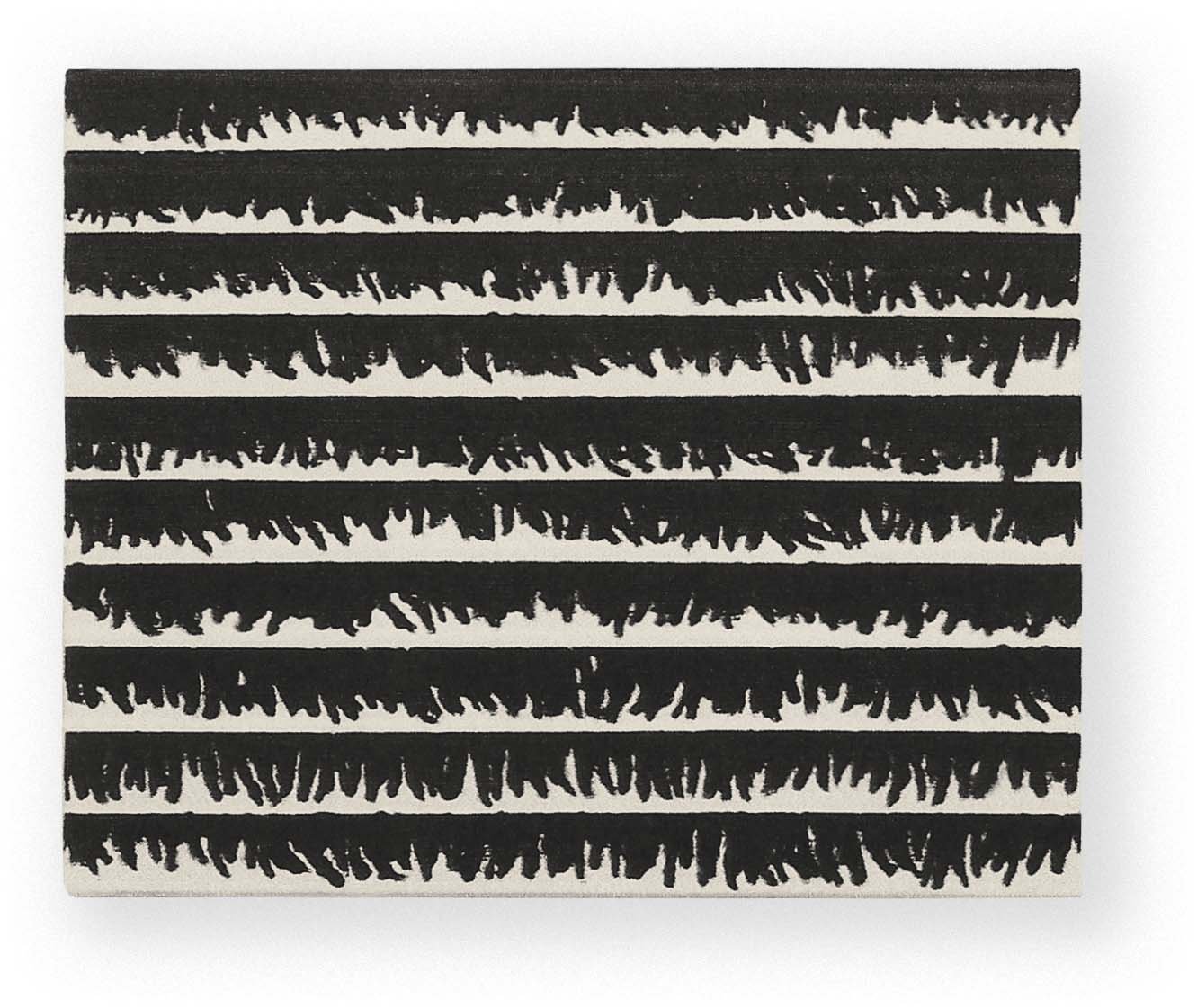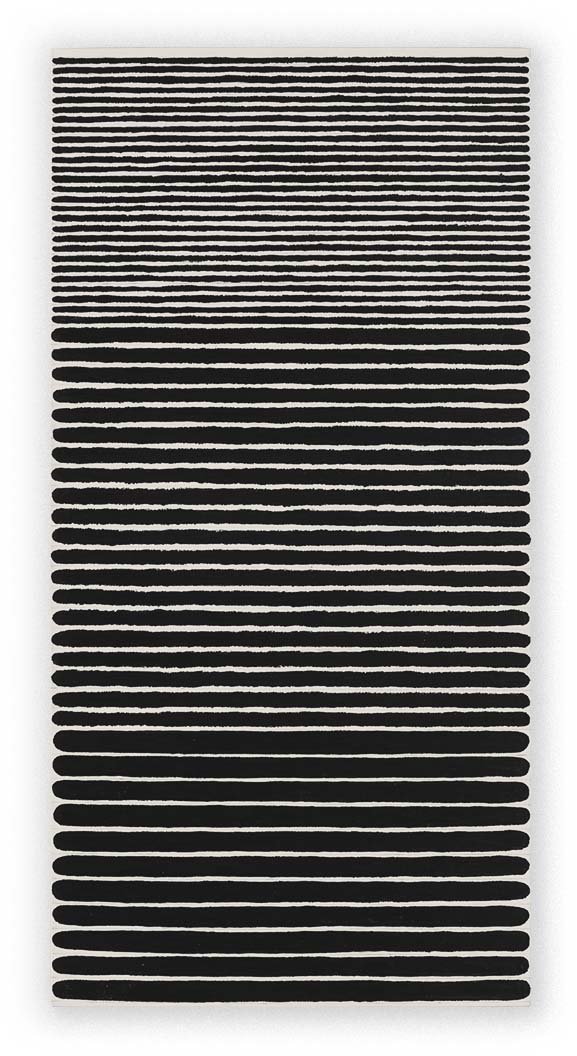Massai (P-158), 2012 P-158 Oil stick with pencil on canvas 84 x 60 in (213.4 x 152.4 cm) Collection of the artist
| “ | I’ve always wanted to make incongruous things go together. It is a thrilling thing to juxtapose a seemingly ‘objective’ geometric motif with another differently rendered geometry and produce a surprisingly passionate combination. |
Since 2000, Witek has continued to actively pursue subjects and catalysts from, for the most part, personal references. Settling in on a technique of building her compositions on white gessoed grounds, a process which she continues to the present, she lays down a dense overall scheme of marking that range from the sinuous and calligraphic to the measured and geometric.
Though a nonobjective formality can be applied to Witek’s continuing practice, paintings from the early part of the 2000 make a return to what the artist labeled “portraiture.” These works are composed in a square format. From there, architectural configurations that layered line and form would be the artist’s continuing focus. A major series developed later in the decade is inspired by the 16th century Indian poet, Saint Mirabai. Having heard Dawn Upshall sing the music of John Harbison, who translated Saint Mirabai’s padas into music, Witek began studying the text in depth. Translating their emotional subject matter into repetitive thin pen ink lines governed by a strict rectangular space applied to rice paper, Witek call these works The Mirabai Series.
Works on paper take on constrained yet bold configurations with the introduction of silverpoint and the expansion of works with ink wash. The use of vellum and rice paper enhance the process.
Solo exhibitions include Sean Scully West Space (2000), Niklas von Bartha, London (’00, ’03), CDS Gallery (’01), Kouros Gallery (’03), Atea Ring Gallery (’06), Outlet Fine Art (’14), Jason McCoy Gallery (’15), Minus Space (’20). Group exhibitions include Black & White at Jason McCoy Gallery (’14), Crossroads at Carnegie Museum of Art (’18).
A career retrospective at Museum Wilheim Morgner opened in Soest, Germany, opened in April 2021.

